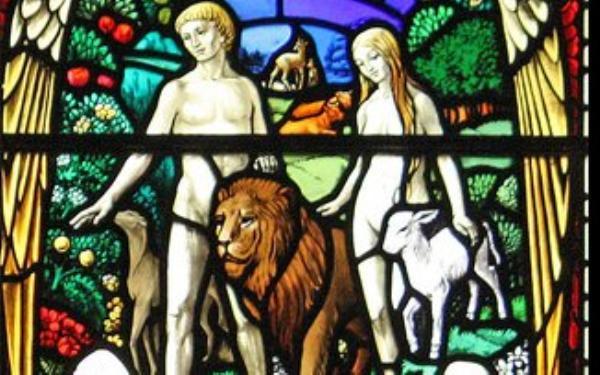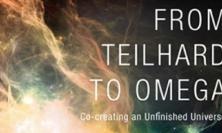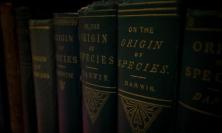Discussions of the difficulties that have arisen for religious believers over the issue of evolution are well rehearsed, but some Christians are still suspicious of Darwin’s theory due to the implications they foresee for their faith. Brian Kilbey, Emeritus Professor of Molecular Parasitology at Edinburgh University, argues that we can think about God’s creativity in a way that recognises and welcomes the full value of the theory of evolution and the insights that it offers.
In the face of the aggressive attacks on religious belief by some scientists and philosophers in recent years, it is perhaps not surprising that some Christians have become, to say the least, uneasy about science in general and Darwin’s theory of evolution in particular. No one likes to be told that their faith is of no consequence and should be abandoned, especially when it has helped them work out how to live their lives. But, is it really true that evolution is the last nail in the coffin of a belief in God? Does it really make a belief in God pointless? There are, undoubtedly, questions to be considered and these arise at a number of levels of differing importance but it is my belief that, far from being the last nail in the coffin of belief in God, evolutionary theory provides us with a solution to a problem facing any creator, however powerful; that of how to create beings who are free to make the decision to love their creator or to love themselves. My purpose in this short essay is to consider the different levels at which suspicion and hostility towards science and evolution has arisen in some parts of the Christian community and to show, if I can, that it is possible to accept the theory of evolution in its undiluted form (that is, without any special pleading or modifications) as an indispensable part of belief in God and his actions as Creator and Lord.
Hostility between science and religion arises at several levels. The easiest to deal with is that of authority: do we trust the creation stories of the Old Testament as literally true or do we rather trust the slowly developed and carefully validated evidence presented by science concerning the age of the solar system and the origin and diversity of life on the planet? There should really be no argument at this level: we know that the contributions of science are constantly checked and re-examined for their validity against new observations; they are likely to be as reliable as we can make them. We now also have a much deeper understanding of the origins and nature of the Bible. We understand, in particular, that too literal a reading of the text ignores the deeper poetic, allegorical and, often, simply political objectives of the writers. They are interpreting history in a form which makes their point in relation to the circumstances in which they find themselves.[1] The literalist view fails to appreciate that even after a text was written it was sometimes rewritten – even to make another point entirely. In other words the Bible is a record of a search for the truth which made use of the prevailing wisdom of the time, and the search is still continuing today as we confront new and emergent truths from wherever they come – including science! Failure to recognise the nature of the Biblical texts and an insistence on taking their stories as purporting to be historical facts accounts for the excesses to be found in some of the pronouncements of certain atheists, for example Richard Dawkins’ negative descriptions of the God of the Old Testament.[2]
Aside from the authority question, however, unease arises – as it always has – over the process of evolution itself. It is true we no longer question whether there has been sufficient time for evolution or whether the fossil record is invalidated by its missing parts, but we now ask whether the evolutionary process could, on its own, possibly have generated the complex systems which make up today’s living organisms.[3] I refer, for example, to the eye, or the propulsion systems of certain cells, to say nothing of the complex biochemical pathways the cell possesses or the ultimate organ of complexity, the human brain. This question is among those which give rise to ideas associated with the term ‘Intelligent Design’, the proposal that some external organising agency is responsible for complexity in the world we inhabit. Science may not yet have untangled all of the examples of complexity but in none of the cases which have so far been investigated has it been necessary to invoke an external guiding force or to conclude that evolutionary processes per se would be incapable of producing the complexity these systems represent. As Dawkins points out, we don’t reach the mountain top in one bound but by a myriad of tiny steps.[4] The process seems to be robustly able to operate successfully and it appears to do so without being prompted or nudged from outside.
Another straw to which the critics of evolution cling is the apparent argument between evolutionists concerning the precise nature of the process: is it slow and continuous, as Darwin suggested, or does it proceed in sudden bursts separated by long periods of quiescence as Gould and Eldredge have proposed?[5] Is Natural Selection the main driver of evolutionary change or are there other forces operating as well? These ‘arguments’ are really points of discussion, and to point to these disputed questions of specific details as betraying fundamental weaknesses in the theory is to miss the point entirely because, in spite of apparent differences in scientific opinion on specific details, there is no doubt in anyone's mind that the process has taken place. Furthermore, Genetics and Molecular Biology have provided us with insights required by the theory into the underlying mechanism for the inheritance of characteristics; evidence making the position of evolution increasingly secure.
There are also, however, other,deeper, issues concerned with the perceived nature of the evolutionary process and how it might fit with the basic Christian belief in a God of absolute love. Darwin struggled with this for many years and in a letter to the botanist, Hooker, he wrote: ‘What a book a Devil’s Chaplain might write on the clumsy, wasteful, blundering, low and horridly cruel works of nature’.[6] It is true that his views were clouded by the sufferings and death of his beloved daughter, Annie, who died aged ten, but, even to our minds, the process is wasteful: there is exploitation and competition, suffering and death, and it is clear that these have been characteristics of the evolutionary process from its very beginning. In addition to this, the evolutionary process depends on undirected gene mutations, the operation of genetic shuffling mechanisms, which maximise the variety of gene combinations available for natural selection to work with and the randomness of fertilisation events. This absence of a controlling hand is worrying and doesn’t seem appropriate to a God of Love, and we are forced to ask why, if God did create, he used such methods in his creation. To us, at any rate, they seem so counterintuitive. Perhaps we need to re-examine some of our ideas about the God we worship and what He can and can’t do.
First of all I think we have to acknowledge that, as a Creator, God is faced with limits to his creativity and I have found it surprising that these are not explored more than they are. I started to realise this when I was trying to find some way of thinking about cosmic creativity by examining my own limited experiences of creativity. I imagined creation as a vast experiment in the planning stages and tried to follow the arguments which might have taken place between the members of the celestial research group responsible for the project. Of greatest interest, as is always the case in this type of discussion, are the objections. One of the discussants pointed out that creating beings who love their creator is impossible because the Creator would never know whether the love shown towards Him was love He had put there Himself or whether it was truly the love of the created being. In other words it seemed to me that unless the creation process could be completely independent of the Creator in its origin and execution, its expressed love might be spurious. We can imagine God being told: ‘However hard you try not to, you will have left your fingerprints on them if you make them yourself!’ Herein lies a problem, because if God alone can be the cosmic creator there is no way out. But if God’s reply was simply to agree with the statement of the problem but then to propose the unthinkable alternative of giving nature the power to create itself, the problem itself might be overcome. True, the Creator would have to set and maintain the parameters within which the process functions, but He would also have to abstain completely from trying to direct or influence the outcome of the creative process. It must proceed in freedom. He must be non-interventionist.
When I first imagined this scenario, I hadn’t realised that others had come to similar conclusions, albeit from different directions. Simone Weil, for example, talks about Creation as a form of abdication.[7] It is being willing to forgo one’s control over the process in full understanding of the potential risks involved. This isn’t the way we like to do things. We are used to having a plan in mind which specifies a particular outcome, and we follow it closely – it is the most efficient way of operating and we are in control. But we can’t always create in this way ourselves and I have often thought of those who engage in genetic engineering. Their way of proceeding is not to map out precisely what is to happen, to select the bits of DNA they want and join them up like a child with a construction game; they don’t have a molecular tool box which always guarantees that the bits of DNA will be joined together in only the required arrangement. The joining is left to the mixture of DNA pieces and, if the experimenter is lucky, somewhere in the resulting mix of products will be the pieces joined together as he or she desires. The skill is in finding it, and the methods used are more efficient now than they were when I started working in the field! That is creation without absolute power. Bishop John Taylor in his book, The Christlike God[8] refers to Weil’s statement but he also refers to the 16th Century Jewish mystic Luria who, albeit by arguments which might not commend themselves to us today, arrived at the idea of tsim tsum, or contraction. As John Taylor describes it, this is the withdrawal of God to create a ‘God-less void’ so that something that is other than God has the freedom to become itself. To do this is to embark on a vast gamble – anything might happen, but this seems to have been an acceptable price for the Creator to pay for the pearl of great price: an independent and free love.
But simply saying that creation is to be given the freedom to create itself without direction or control is one thing; knowing in practical terms how this is to be achieved is quite another matter. How is ‘creation’ to be wise enough to direct its own creation when it doesn’t even have a ‘mind’ with which to be wise? Before the emergence of the theory of evolution and its genetic underpinning, it was impossible to imagine how – there had to be some sort of external designer to impose a pattern on nature, there seemed to be no other course possible. But, with the advent of Darwin’s theory and the steady accumulation of supportive evidence, we suddenly can see that there is just such a process for creating without external control. Not only simple systems, but, more importantly, complex systems can arise steadily and in response to the promptings of naturally selective influences because the genetic systems possessed by every organism constantly throw up constellations of possibilities to be tried and discarded, tolerated or even favoured. In nature we have a system which is indeed creating itself and we know that, on earth, it has produced creatures who have already expressed their love for their creator. Perhaps in Jesus of Nazareth we have seen the perfection of this expression of love. Now if that were to be true, surely it would be the vindication of the Creator’s trust in his creative plan. It would make worthwhile all the risks and the pain of repeated disappointment from ‘sparrows’ which fall to the ground and ‘lilies of the field’ which are thrown into the oven, failures which must have been the Creator’s constant companions during the ages of waiting, faithfully sustaining and always hoping.
Perhaps I should give the last word to the far-sighted Anglican theologian, Austin Farrer who originally wrote this 50 years ago:
God not only makes the world, he makes it make itself: or rather he causes its innumerable constituents to make it. And this, in spite of the fact that the constituents are not for the most part intelligent. They cannot enter into the creative purposes they serve. They cannot see beyond the tip of their noses, they have indeed no noses to see beyond, nor any eyes with which to fail in the attempt. All they can do is blind away at being themselves, and fulfil the repetitive pattern of their existence.[9]
Brian Kilbey is Emeritus Professor of Molecular Parasitology at Edinburgh University.
[1] Cf. Dei Verbum 12: ‘since God speaks in Sacred Scripture through men in human fashion, the interpreter of Sacred Scripture, in order to see clearly what God wanted to communicate to us, should carefully investigate what meaning the sacred writers really intended, and what God wanted to manifest by means of their words.
To search out the intention of the sacred writers, attention should be given, among other things, to "literary forms." For truth is set forth and expressed differently in texts which are variously historical, prophetic, poetic, or of other forms of discourse. The interpreter must investigate what meaning the sacred writer intended to express and actually expressed in particular circumstances by using contemporary literary forms in accordance with the situation of his own time and culture. For the correct understanding of what the sacred author wanted to assert, due attention must be paid to the customary and characteristic styles of feeling, speaking and narrating which prevailed at the time of the sacred writer, and to the patterns men normally employed at that period in their everyday dealings with one another. ’
[2] Dawkins, R., The God delusion (Bantam Press, 2006), p. 31
[3] Behe, M.J., Darwin’s Black Box (New York: Simon and Schuster), 1996
[4] Dawkins, R., Climbing Mount Improbable ( New York: Norton), 1996
[5] Gould, S. J. and N. Eldredge, ‘Punctuated Equilibrium Comes of Age’, Nature 366, 1993, 223-227. For an extended discussion of Gould and Eldredge see K. R. Miller, Finding Darwin’s God pp. 84 - 87 et seq.
[6] Keynes, R., Creation, (London: John Murray, 2009), p. 222
[7] Weil, S., First and Last Notebooks (OUP, 1970 ), p. 120
[8] Taylor, J.V., The Christlike God (SCM Press, 1992)
[9] Farrer, A., Saving Belief (Mowbray, 1994), pp. 39-40






